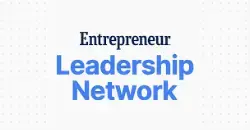We’ve all heard the phrase “loose lips sink ships” before. Now the phrase “loose tweets sink markets” can be coined, as long as you don’t mind if your idioms don’t rhyme.
On Tuesday, Apr. 24, the Syrian Electronic Army hacked the Associated Press’s official Twitter account. The hacker group then tweeted there had been an explosion at the White House and President Barack Obama had been injured in the blast.
Aside from stirring up panic among the AP’s massive online audience (the AP has more than 1 million Twitter followers), it also created hysteria at the New York Stock Exchange. The NYSE streams certain Twitter feeds across electronic banners on the trading floor, and you guessed it, the AP is one of those accounts the exchange broadcasts. After Wall Street traders got a glimpse at the offending tweet, a massive sell-off occurred, creating what is often referred to as a “flash crash.”
The Dow Jones Industrial Average dropped more than 130 points, nearly one percent, over the span of two minutes. Six minutes later, the Dow had gained back nearly all that lost value. Another major index, The S&P 500, lost $121 billion dollars in value during this flash crash.
The stock market is known for experiencing wild swings, but these typically occur over the course of days, weeks or months. It is very unusual for such a large drop (or gain for that matter) to happen in the span of just a few minutes.
This incident demonstrates the power of social media. One fake tweet was able to move the entire stock market and cause people to react in such drastic fashion. Nearly 9 million shares of Dow stocks were traded during that dip. Let this incident serve as a demonstration of the power of social media.









